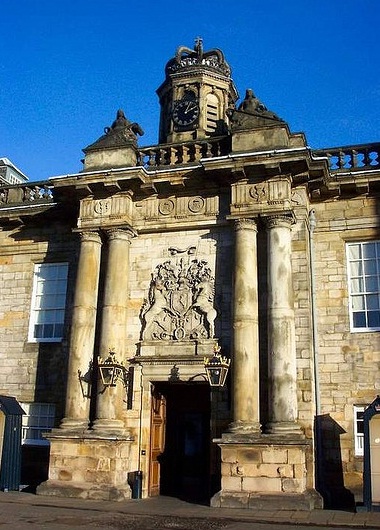 The Queen is the United Kingdom's Head of State. As well
as carrying out significant constitutional functions,
The Queen also acts as a focus for national unity,
presiding at ceremonial occasions, visiting local
communities and representing Britain around the world. The Queen is the United Kingdom's Head of State. As well
as carrying out significant constitutional functions,
The Queen also acts as a focus for national unity,
presiding at ceremonial occasions, visiting local
communities and representing Britain around the world.
The Queen is also Head of the Commonwealth. During her
reign she has visited all the Commonwealth countries,
going on 'walkabouts' to gain direct contact with people
from all walks of life throughout the world.
Behind and in front of the cameras, The Queen's work
goes on, and no two days in The Queen's working life are
ever the same.Until the end of the 17th century,
British monarchs were executive monarchs - that is, they
had the right to make and pass legislation. Since the
beginning of the eighteenth century, the monarch has
become a constitutional monarch, which means that he or
she is bound by rules and conventions and remains
politically impartial.
On almost all matters he or she acts on the advice of
ministers. While acting constitutionally, the Sovereign
retains an important political role as Head of State,
formally appointing prime ministers, approving certain
legislation and bestowing honours.
The Queen also has important roles to play in other
organisations, including the Armed Forces and the Church
of England.
The Queen is not only Queen of the United Kingdom,
but Head of the Commonwealth, a voluntary association of
53 independent countries.
Most of these countries have progressed from British
rule to independent self-government, and the
Commonwealth now serves to foster international
co-operation and trade links between people all over the
world.
In addition to the United Kingdom, The Queen is also
Queen of a number of other Commonwealth realms,
including Australia, New Zealand and Canada.
The Queen has many different duties to perform every
day. Some are familiar public duties, such as
Investitures, ceremonies, receptions or visits within
the United Kingdom or abroad. Away from the cameras,
however, The Queen's work goes on. It includes reading
letters from the public, official papers and briefing
notes; audiences with political ministers or
ambassadors; and meetings with her Private Secretaries
to discuss her future diary plans. No two days are ever
the same and The Queen must remain prepared throughout.
| 
